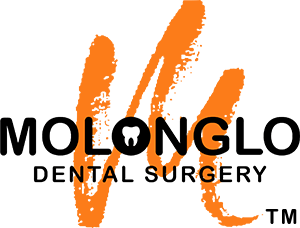Cavitated or rotten teeth are the ones that have undergone some colour change and are sensitive or painful. When food and bacteria accumulate in and around your teeth, they can form plaque on your teeth. The bacteria in plaque generate acids that can destroy the tooth enamel.
This forms a hole in the tooth/teeth. If left untreated, dental caries can ultimately weaken and destroy your tooth. An untreated cavity can create serious difficulties like a tooth abscess, swelling in the face from an abscessed tooth or an infection that enters your blood.
Cavities or tooth decay or dental caries are caused by a combination of factors such as:
● Amount of bacteria in your mouth,
● frequent snacks of chips, cake, cookies
● Continual sipping of sugary drinks
● not brushing teeth well.
● eating dried sweetened fruit often
● too much ice cream
● Regular consumption of hard candy
● drinking too much soda, sweetened fruit juices, sugary drinks
● Eating disorders
● Heartburn and GERD
● Very old fillings or crowns
● Dry mouth
● Brushing once a day
● Lack of fluoride
Areas in your mouth that may be at an increased risk of plaque accumulation include:
1. Chewing surfaces of back teeth
2. Tiny gaps between your teeth
3. The junction of your teeth and gums
4. Roots of teeth
Dental caries no longer involves just children and young adults. It is now common for adults, who’ve never had dental caries, to present with root caries at a time when the disadvantage of oral disease may be a risk to their overall health.
Further, there has been a change in the location affected by dental caries – from chewing surfaces of molars, pits, fissures, and grooves to including the tiny spaces between teeth and roots of teeth.
Numerous indications may demonstrate the beginning of a Dental cavity.
Here are some common signs of a dental cavity:
1. Hot and cold sensitivity
Sensitivity that lingers after eating any hot or cold food could be an indication that you have a cavity.
When the enamel on your tooth starts to erode, it can affect the dentin, which is the hard tissue layer below the enamel. Dentin contains lots of microscopic tiny hollow canals.
When there isn’t sufficient enamel to protect the dentin, foods that are hot, cold, sticky, or acidic can stimulate the nerves inside your tooth and cause sensitivity.
2. Lasting sensitivity to sweets and sugary drinks
Sensitivity caused after consumption of Sweets and sugary drinks can also suggest tooth decay.
A very high concentration of sugar in the mouth causes the calcium and phosphorous of the enamel to leak out thereby making it susceptible to dental cavities.
3. Toothache/Dental pain
A toothache can be of the following types:
● Sudden
● On eating a particular food and nothing thereafter
● Continuous
● Pain on biting
If you experience any one of the above, it indicates the presence of a dental cavity in your mouth.
4. Tooth stains/Dental stains
A minor colour difference to a brown-black colour change is seen mostly in the dental cavity.
If you notice any one or more of the following on your tooth or at the junction of your tooth and gums, you most likely have a dental cavity:
1. White spot/spots
2. Yellow or brown spots
3. Bluish white discolouration
Additionally, the texture of your tooth surface will feel different if you touch it with your tongue.
At Molonglo Dental Surgery, your friendly Canberra dentist recommends a visit to the dental surgery twice a year. During the consultation, your caring dentist at the best dental clinic in Canberra will identify dental caries in their initial stages and treat them with minimal discomfort.
5. A hole in your tooth
If the white/brown/blackish spot on your tooth worsens, it will cause a hole in your tooth. You may feel pain or sensitivity in the region of the cavity. Additionally, small cavities can develop in the tiny gaps between your teeth. The tooth will look sound because the cavity developed at the junction of the tooth and gums.
Cavities start with a small discolouration or hole but can cause enormous tooth destruction and gum infections if they’re allowed to get bigger.
Complications of untreated dental cavities may include:
● Pain
● Tooth abscess
● Swollen gums or pus around a tooth
● broken teeth
● Tooth loss
● Chewing difficulties
● Gaps between teeth
● nutrition deficiencies due to difficulty in chewing
Prevention
Your friendly dental surgeon and her efficient team at the best dental clinic in Canberra, recommend at least a twice-a-year check-up and consultation to educate you about the current condition of your teeth and gums.
In addition, good oral hygiene and the following guidelines can certainly help you prevent tooth decay.
● Brush with a fluoride toothpaste
● Floss or use an interdental cleaner.
● Rinse your mouth with water after eating or drinking. However, brush after 30 mins, not before.
● Ask your dentist for a recommendation for a mouth rinse with fluoride.
● Get professional teeth cleanings and regular oral exams,
● Consider dental sealants for kids
● Avoid frequent snacking and sipping on sugary foods and drinks
● Avoid foods that get stuck in grooves and pits of your teeth for long periods
● Consider fluoride treatments for your children
● Ask about any antibacterial treatments if you’re diagnosed as vulnerable to tooth decay.
With these few points, you can eliminate your worries about your dental decay or teeth rotting. However, if you already feel tooth pain or see the indications of rotting teeth, visit your Canberra dentist today. Your dental professional can handle your tooth decay (dental cavity ) and provide the necessary treatments to maintain your smile and conserve your general health.



